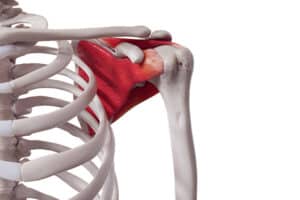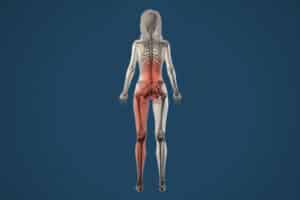Chronic pain, a complex and often debilitating condition, affects millions of people worldwide. Per Physiopedia, Chronic pain is a leading source of human suffering and disability.
Unlike acute pain, which is a natural response to injury and typically resolves once the injury heals, chronic pain persists long after the injury has healed, sometimes even without a clear cause. This type of pain can have a profound impact on a person’s quality of life, making daily activities challenging and affecting mental health.
https://www.csp.org.uk/ states: Physiotherapy helps people with long term (chronic) pain develop the skills they need to manage their condition, increase their activity and improve their quality of life.
The Role of Physiotherapy in Chronic Pain Management
Physiotherapy is a cornerstone in the management of chronic pain and offers a multifaceted approach tailored to the unique needs of each individual.
It involves a personalized approach that not only focuses on pain relief but also addresses the underlying factors contributing to the pain.
Physiotherapists use a combination of techniques to improve function, enhance mobility, and alleviate pain. Physiotherapy also goes beyond mere symptom management, aiming to empower patients to take an active role in their recovery and improve their overall quality of life. Let’s delve deeper into the various aspects and techniques of physiotherapy in managing chronic pain.
Physiotherapy – Comprehensive Assessment
Physiotherapists begin with a comprehensive assessment that encompasses not only the physical symptoms but also the emotional, cognitive, and social aspects of the individual’s pain experience. This holistic approach ensures a more accurate diagnosis and the creation of a more effective treatment plan. Key elements of this assessment include:
Pain History: Understanding the onset, duration, intensity, and nature of the pain.
Physical Examination: Assessing movement, strength, and flexibility.
Functional Assessment: Evaluating how pain affects daily activities and quality of life.
Physiotherapy – Personalized Treatment Plans
Physiotherapy’s role in managing chronic pain is dynamic and patient-centric. It not only addresses the physical manifestations of pain but also considers the emotional and psychological dimensions. By employing a range of treatment strategies and fostering self-management, physiotherapy can significantly improve the lives of those suffering from chronic pain.
Based on the assessment, physiotherapists develop a tailored treatment plan. This plan may include:
Manual Therapy: Techniques such as mobilization, manipulation, and massage can help alleviate pain, improve joint mobility, and enhance tissue healing.
Exercise Therapy: This is the foundation of physiotherapy for chronic pain. It includes:
- Therapeutic Exercises: Targeted exercises to strengthen weak muscles and improve flexibility.
- Aerobic Conditioning: Low-impact activities like walking, cycling, or water exercises to boost endurance and cardiovascular health.
- Pain-Relief Exercises: Gentle movements and stretches specifically designed to alleviate pain.
Pain Neuroscience Education (PNE): Educating patients about the science of pain helps demystify their experience and can alter their perception of pain, leading to better management strategies.
Mind-Body Techniques: Incorporating mindfulness, relaxation techniques, and breathing exercises to help manage the psychological aspects of chronic pain.
Lifestyle Advice: Guidance on sleep, nutrition, and stress management to support overall health and wellbeing.
Physical Activity and Chronic Pain
Physical activity plays a crucial role in managing and alleviating chronic pain. While it might seem counterintuitive to exercise when you’re in pain, appropriate physical activity can actually bring significant relief and offer numerous benefits for those suffering from chronic pain conditions. Here are several key ways in which physical activity can help:
Pain Reduction: Regular exercise can lead to a reduction in overall pain levels. It does so by strengthening muscles, improving flexibility, and increasing joint mobility, which in turn can alleviate stress on painful areas.
Release of Endorphins: Physical activity stimulates the production of endorphins, the body’s natural painkillers. These chemicals produced by the brain help improve mood while also blocking pain signals.
Improved Sleep: Chronic pain often disrupts sleep, but regular physical activity can enhance sleep quality. Better sleep can in turn help reduce pain and improve overall well-being.
Weight Management: For those with chronic pain, especially in weight-bearing joints like the hips and knees, maintaining a healthy weight is crucial. Regular exercise helps in weight management, thereby reducing the stress on these joints.
Enhanced Blood Flow: Exercise increases blood flow to all parts of your body, which can help to promote healing and reduce pain in affected areas.
Increased Strength and Flexibility: Strengthening exercises improve the support around painful joints and areas, while flexibility exercises reduce stiffness and increase range of motion.
Improved Mental Health: Chronic pain can lead to depression, anxiety, and stress. Physical activity is known for its positive effects on mental health, helping to alleviate these conditions.
Exercises for Pain Management
Exercises for pain management are a critical component of treating chronic pain. They not only help in reducing pain but also improve mobility, strength, and overall quality of life. The key is to choose exercises that are safe, effective, and tailored to individual needs and pain conditions.
It’s important for individuals with chronic pain to work with a physiotherapist, before starting any exercise program. Recommendations can be made for exercises that are safe and beneficial for their specific condition. Activities like swimming, walking, yoga, and tai chi are often good options, offering low-impact ways to stay active without exacerbating pain.
Here’s an expanded look at various types of exercises that are beneficial for pain management:
Stretching Exercises: To improve flexibility and reduce stiffness.
Strengthening Exercises: Focused on building muscle to support and stabilize affected areas.
Cardiovascular Exercises: Such as walking or swimming, to enhance overall fitness and reduce pain.
Guidelines for Exercise in Pain Management
Exercises for pain management should be an integral part of chronic pain treatment. They offer not just physical benefits but also contribute to mental well-being, helping individuals lead a more active and fulfilling life despite their pain condition.
Start Slowly: Begin with low-intensity exercises and gradually increase duration and intensity.
Consistency is Key: Regular, moderate exercise is more effective than intermittent high-intensity workouts.
Listen to Your Body: Avoid exercises that cause pain exacerbation.
Professional Guidance: Work with a physiotherapist, especially when starting a new exercise program.
Lifestyle Modifications
Lifestyle modifications play a pivotal role in managing chronic pain, complementing medical treatments and physical therapies. These changes focus on improving overall health and wellness, which can significantly impact pain levels, mood, and the ability to cope with chronic pain. Here’s an expanded look at various lifestyle changes that can aid in managing chronic pain:
Posture Correction: Learning and maintaining correct posture to reduce strain on the body.
Stress Management: Techniques like meditation and yoga can help manage the psychological aspects of chronic pain.
Dietary Changes: A balanced diet can improve overall health and aid in pain management.
Incorporating these lifestyle modifications can significantly improve the management of chronic pain. It’s essential to approach these changes gradually and consistently, and in consultation with healthcare professionals to ensure they are safe and effective for individual health conditions.
Effectively Managing Chronic Pain with Physiotherapy
Chronic pain is a challenging condition, but with the right approach, it can be managed effectively. Physiotherapy offers a comprehensive treatment plan that not only focuses on pain relief but also aims to improve the patient’s overall quality of life. It’s important for individuals suffering from chronic pain to consult with a healthcare professional and consider physiotherapy as a viable option for managing their condition.
Get started today!
Seeing a professional physiotherapy provider like Nova Physiotherapy can offer expert care, personalized treatment, education, and a holistic approach to chronic pain. If you’re considering physiotherapy, contact the friendly and experienced team at Nova Physiotherapy. We’re ready to help you on the road to better health.








